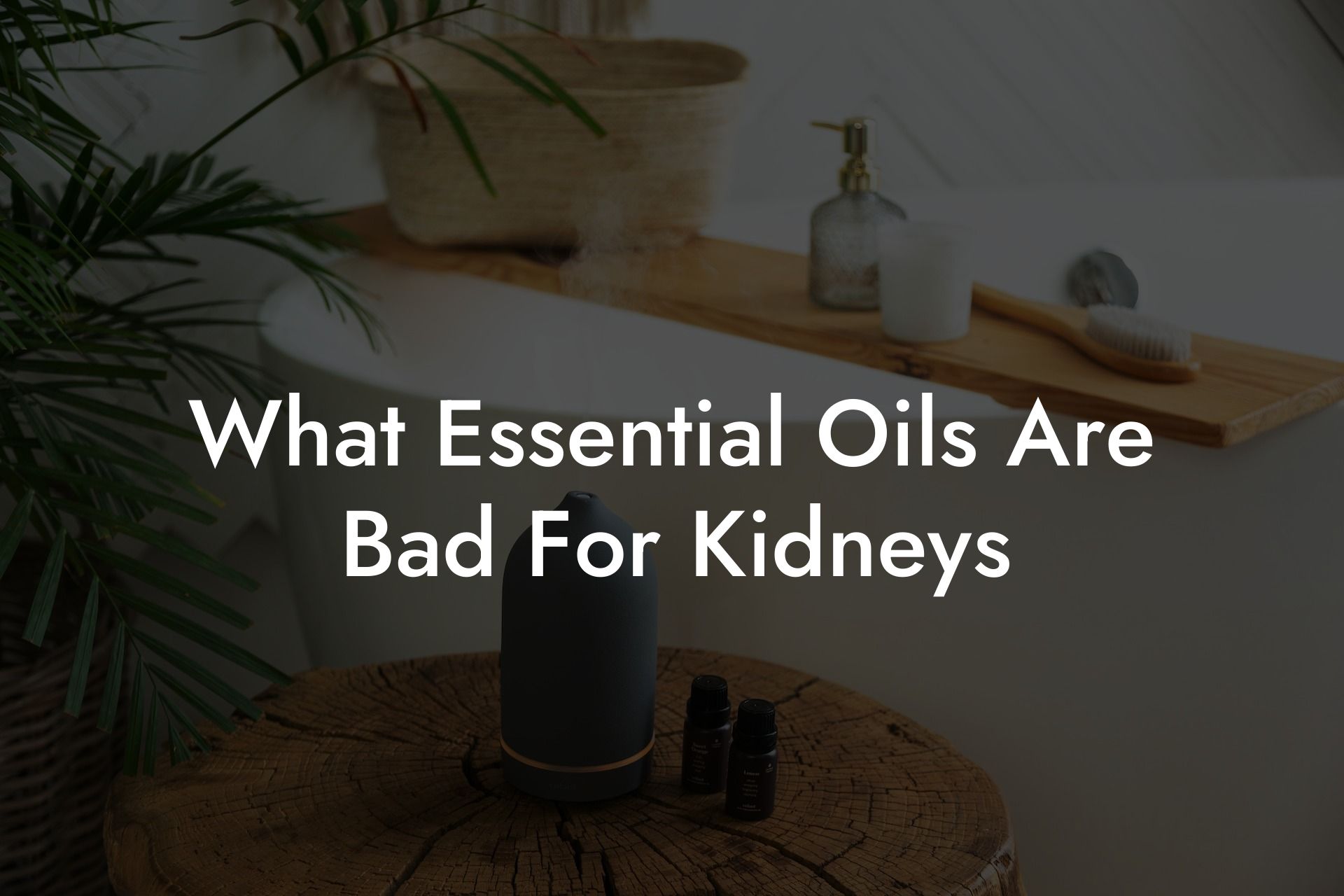Our kidneys are vital organs responsible for filtering waste and excess fluids from our bodies. Maintaining kidney health is essential for our overall wellbeing, but did you know that some essential oils can potentially be harmful to these important organs? While essential oils offer countless benefits, it’s crucial to know which ones we must avoid when it comes to kidney health. In this article, we will explore essential oils that are potentially bad for kidneys and provide tips for staying kidney-safe with essential oils.
Table of Contents
Why Some Essential Oils Are Bad For Kidneys
Essential oils are concentrated plant extracts with a multitude of benefits; however, they are also highly potent substances. As a result, overusing or misusing certain essential oils can lead to adverse health effects. Like any substance, the potential impact on the kidneys depends on factors such as dosage, duration of usage, and individual health conditions.
Nephrotoxicity: A Threshold of Concern
When essential oils cross the threshold of safe use, they become nephrotoxic – harmful to the kidneys. Nephrotoxic substances damage kidney cells and disrupt normal kidney function, which can lead to kidney dysfunction or failure.
Risk Factors and Potential Harm
How damaging nephrotoxic essential oils can be depends on each individual’s risk factors. People with kidney disease, a history of kidney problems, or other health conditions should exercise caution when using essential oils, as their kidneys may already be compromised.
Essential Oils to Avoid for Kidney Health
While many essential oils are safe when used correctly, some are known to pose risks to kidneys:
1. Wintergreen: Wintergreen essential oil contains a high concentration of an organic ester called methyl salicylate, which has analgesic and anti-inflammatory properties but can be toxic in large amounts. Kidney damage can occur if the oil’s components are excessively absorbed or ingested.
2. Juniper: Known for its detoxifying and diuretic properties, juniper essential oil stimulates the kidneys and increases urine production. However, inappropriate use or overuse may cause irritation or damage to the kidneys due to its high potency.
3. Pennyroyal: Pennyroyal essential oil is a powerful abortifacient and can be toxic when ingested or applied topically. Pulegone, a toxic compound found in pennyroyal, is known to cause liver and kidney failure.
4. Nutmeg: Though used in some natural remedies, nutmeg essential oil contains myristicin and safrole. Overuse may lead to toxic effects, including kidney inflammation or injury.
5. Birch: Similar to wintergreen, birch essential oil also contains methyl salicylate. This oil must be used cautiously, as it can be detrimental to kidney function if overused or ingested.
Safe Use of Essential Oils for Kidney Health
To minimize the risk of kidney damage from essential oils, follow these guidelines:
– Consult with a qualified professional, such as an aromatherapist, before using essential oils, particularly if you have kidney health concerns.
– Use essential oils correctly by following proper dilution ratios, avoiding ingesting oils, and adhering to usage recommendations.
– Opt for alternative oils with kidney-friendly properties when seeking the benefits of potentially harmful oils. For example, use lavender or eucalyptus essential oils instead of wintergreen.
– Discontinue use of any essential oil if you experience adverse reactions or kidney pain.
What Essential Oils Are Bad For Kidneys Example:
Jane suffers from chronic kidney problems and decides to explore essential oils for relaxation and stress management purposes. To remain kidney-safe, she consults with a certified aromatherapist who recommends lavender and chamomile essential oils for their calming effects. Jane takes care to dilute these oils properly and uses them in a diffuser instead of applying them topically or ingesting them. As a result, she enjoys the benefits of essential oils without inadvertently harming her kidneys.
A wealth of essential oils can improve your mental and physical well-being, but it’s crucial to stay informed and cautious when using these potent substances, especially when it comes to kidney health. By understanding which essential oils to avoid and following safe usage guidelines, you can protect your kidneys while reaping the benefits of aromatherapy.
Continue exploring Oshu Oils’ guides for more insights into essential oils and their effects on your health – and remember to browse our range of high-quality, artisan essential oils crafted by expert aromacologists! If you found this article helpful, please share it with others and help spread awareness about kidney-safe essential oil use.





















